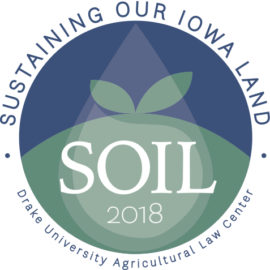Updated on March 29, 2018
A Farmer’s Take on the Iowa Statewide Greenhouse Gas Emissions Inventory Report
My dad didn’t farm like my grandpa, and I don’t farm like my dad. For five generations, my family has been changing how we farm in Iowa and I fully expect the next five generations to keep changing as well.
It is time for a change in the way farmers farm.
The 2016 Iowa Statewide Greenhouse Gas Emissions Inventory Report from the Iowa Department of National Resources provides some bad news by the numbers for agriculture. While all greenhouse gas (GHG) emissions in Iowa are down 2% from 2015 and 9.29% lower than the peak in 2007, emissions from agriculture have slowly risen over the past four years nearer to the peak in 2007.
Agriculture continues to be the largest contributor toward Iowa’s GHG emissions, making up 31% of the total. Not included in this total is GHG emissions from fossil-fuel fired agricultural equipment like tractors and combines, as they are included in the transportation sector.
Iowa farmers are not yet fully engaged in dealing with greenhouse gas emissions and climate change that is caused by us. This is to all of our detriment, and the time has come for us to act. We have the opportunity to embrace the change and make a profit.
Farmers have already done this. Farmers led in wind energy generation policy, development, and practice, which, in turn, benefitted the environment and our pockets. The lion’s share of the reduction in GHG emissions since 2007 came from an increase in wind energy generation and the decrease of coal fired energy. Farmers and landowners were paid over $20 million in 2016 in lease agreements for the generators turning on their land.
As we lead the nation in wind energy generation, we can also lead the nation in carbon farming while reducing emissions and increasing our profits.
Obviously, we’ll have to modify our farming systems, but that’s something we are doing all the time.
The 2016 Iowa Statewide Greenhouse Gas Emissions Inventory Report provides an opportunity to develop a vision to how Iowa agriculture can change to sustainably produce commodities to meet the growing demand. As we evolve our farming systems to reduce emissions and to sequester carbon, we can solve most of our water quality problems, too.
I’m going to keep trying to improve Iowa farming practices, because I know that’s what my great-great grandfather did and I hope my great-great grandniece will keep doing.



